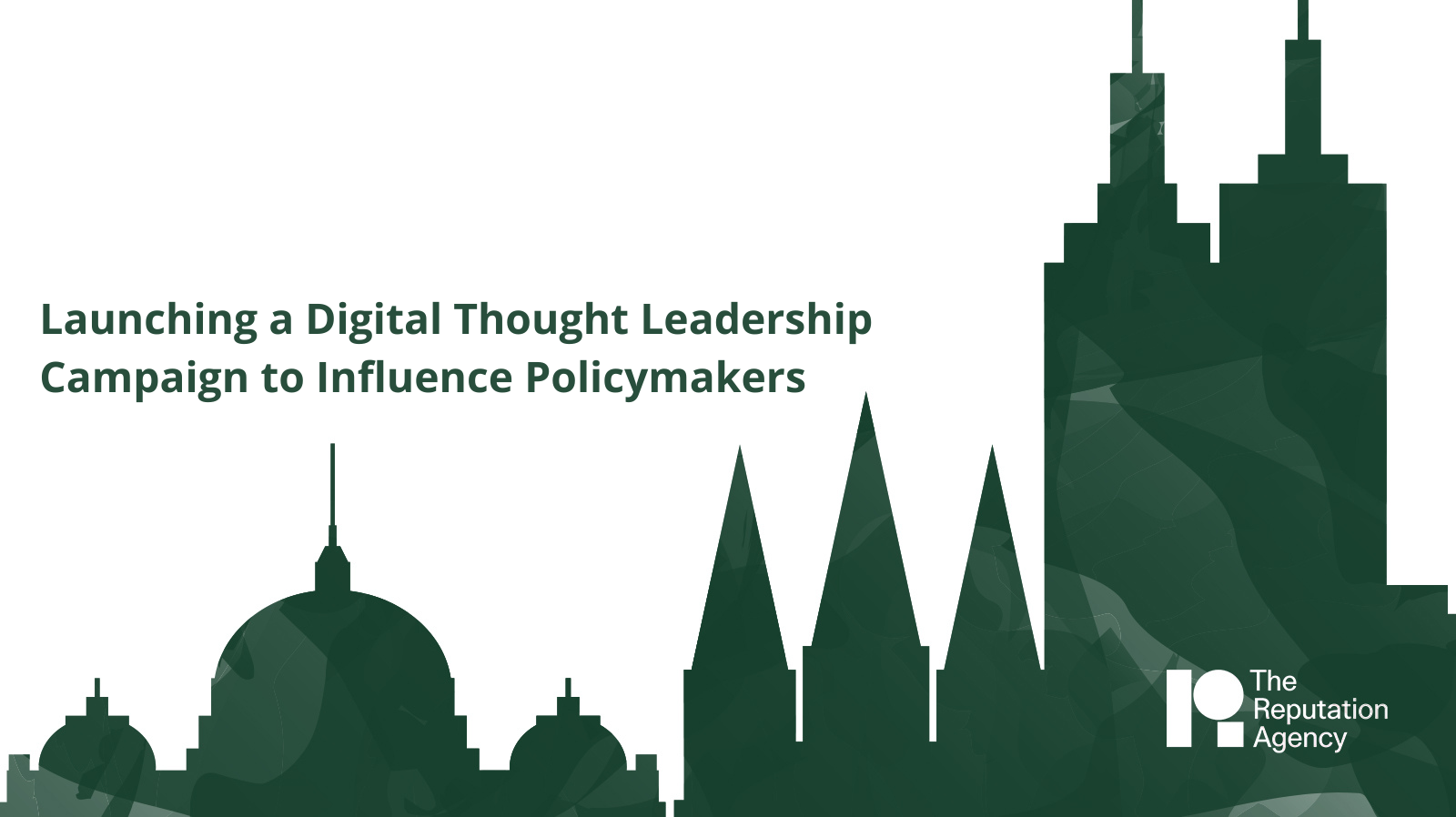Launching a Digital Thought Leadership Campaign to Influence Policymakers
Why Thought Leadership Matters for Policymaker Influence
Influencing policymakers requires credibility, visibility, and consistent messaging. Digital thought leadership campaigns allow organisations to share insights, research, and expert opinions, positioning themselves as trusted voices in their industry while shaping policy discussions.
Steps to Launch a Digital Thought Leadership Campaign
1. Define Clear Campaign Objectives
Determine what your campaign aims to achieve:
Influence legislation or regulatory decisions
Raise awareness on key industry issues
Establish your organisation as a trusted expert
Setting measurable goals ensures focused strategy and evaluation.
2. Identify Key Policymaker Audiences
Map out target audiences including:
Government ministers and advisors
Parliamentary committees
Regulatory bodies
Influential industry associations
Understanding their priorities and interests guides tailored messaging.
3. Develop Compelling Thought Leadership Content
Create content that demonstrates expertise and relevance:
Insightful blog articles and whitepapers
Data-driven reports and research summaries
Op-eds and commentary in media outlets
Videos and webinars showcasing subject matter experts
High-quality content positions your organisation as an authoritative voice.
4. Choose Digital Channels Strategically
Reach policymakers through platforms they engage with:
LinkedIn for professional visibility
Twitter/X for real-time policy updates
Targeted newsletters and direct emails
Government or industry portals for formal submissions
Channel selection ensures your content reaches the right stakeholders effectively.
5. Measure Engagement and Influence
Track campaign performance to assess impact:
Monitor views, downloads, and shares
Track engagement from policymakers and stakeholders
Measure changes in awareness, sentiment, or policy consideration
Data-driven insights allow continuous improvement and evidence of campaign ROI.
6. Iterate and Refine
Adjust messaging and tactics based on engagement metrics:
Refresh content formats or topics to align with audience feedback
Leverage emerging digital trends and platforms
Update campaign objectives as policy priorities evolve
A dynamic approach maximises influence and strengthens thought leadership credibility.
Did You Know?
Organisations that actively share thought leadership content online are 60% more likely to be cited in policy discussions and gain access to decision-makers.
Building Influence Through Digital Thought Leadership
A well-executed campaign positions your organisation as a trusted advisor in policymaking circles. By combining targeted content, strategic channels, and measurable engagement, you can elevate your influence while reinforcing your corporate reputation.
Need Assistance Crafting Your Campaign?
The Reputation Agency supports organisations in launching digital thought leadership campaigns to effectively engage policymakers. Learn more about our digital reputation management services to strengthen influence and visibility.
FAQs
1. Why use digital thought leadership to influence policymakers?
It establishes credibility, increases visibility, and allows targeted engagement with decision-makers.
2. How do you identify the right policymakers to target?
Map audiences based on relevance, decision-making authority, and engagement in policy discussions.
3. What content formats work best for digital thought leadership?
Blogs, whitepapers, op-eds, reports, videos, and webinars showcasing expertise.
4. Which digital channels are most effective for policymakers?
LinkedIn, Twitter/X, targeted newsletters, and industry or government portals.
5. How can the impact of the campaign be measured?
Track engagement metrics, policymaker interactions, content downloads, and citations in policy discussions.

